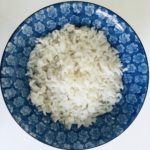 People with celiac disease, gluten intolerance or a wheat allergy are accustomed to reading ingredient labels to know what they can or cannot eat. But what about cosmetics? Is it necessary to avoid gluten in makeup or shampoo? And if so, how easy is it to spot on a label?
People with celiac disease, gluten intolerance or a wheat allergy are accustomed to reading ingredient labels to know what they can or cannot eat. But what about cosmetics? Is it necessary to avoid gluten in makeup or shampoo? And if so, how easy is it to spot on a label?
Whether celiacs and gluten-sensitive people need to avoid gluten in their cosmetics, including makeup, lotion, and hair products, has been the subject of debate. During my gluten-free life, I have heard two different schools of thought about this. The conservative one is that celiac disease is a digestive disorder and that to exacerbate the condition, one would have to consume gluten, so lipstick would need to be checked because you are literally consuming it when you wear it. Because this school of thought maintains that gluten cannot be absorbed through the skin, gluten-containing shampoo would be considered safe, as would any other cosmetic or beauty or hygiene product that is not being eaten. The Mayo Clinic’s website is one resource that supports this idea, in their answer to Can gluten be absorbed through the skin? (Their answer is no.)
The other school of thought is that gluten on the skin, or anywhere on the body, can aggravate celiac disease or gluten sensitivity, especially if someone has any associated skin conditions. At the American College of Gastroenterology’s 76th Annual Scientific meeting, doctors presented a case of a 28-year old woman who experienced worsening of her celiac symptoms, including gastrointestinal complications and a recurring skin rash after using a body lotion advertised as “natural.†When she stopped using the lotion, her symptoms resolved. This was just one case, but how common is it to react to gluten in skin products? It’s hard to say, as most of the information is anecdotal, and few studies have been conducted, but I know from the people I have contact with in the gluten-free community that it is a problem for many.
The case of the 28-year old woman prompted researchers to explore how readily available information is about cosmetic ingredients. What they found, and what most of us already know, is that ingredients are difficult to obtain from cosmetic companies. Even if you can obtain all the ingredients, they are difficult to understand. Unlike the food industry, which requires labels to list the top 8 allergens in plain language so we can understand it, the cosmetics industry is not required to make ingredients understandable or list allergens.
I did find some information to help sort through the confusing labels and hopefully locate the gluten ingredients to watch out for.
CosmeticsInfo.org is a website that gives specific information about individual ingredients. In a search for “gluten”, “wheat” and “oat”, I was able to find the following ingredients and their definitions, including what type of cosmetics they are used in:
- Triticum Vulgare (Wheat) Germ Oil
- Triticum Vulgare (Wheat) Gluten
- Triticum Vulgare (Wheat) Kernel Flour
- Triticum Vulgare (Wheat) Starch
- Wheat Germ Glycerides
- Avena Sativa (Oat) Kernel Meal
In addition, I found a commonly circulated list from L’Oreal of ingredients they state “contain wheat and other grains.” It’s not clear to me if all of these ingredients contain gluten (they may contain another grain like corn, for example).
Avena Sativa (Oat) Kernel Flour
Cyclodextrin
Dextrin
Dextrin Palmitate
Hydrolyzed Malt Extract
Hydrolyzed Oat Flour
Hydrolyzed Vegetable Protein
Hydrolyzed Wheat Flour
Hydrolyzed Wheat Gluten
Hydrolyzed Wheat Protein
Hydrolyzed Wheat Protein/PVP Crosspolymer
Hydrolyzed Wheat Starch
Malt Extract
Maltodextrin
Secale Cereale (Rye) Seed Flour
Sodium C8-16 Isoalkylsuccinyl Wheat Protein Sulfonate
Triticum Vulgare (Wheat) Germ Extract
Triticum Vulgare (Wheat) Germ Oil
Triticum Vulgare (Wheat) Gluten
Triticum Vulgare (Wheat) Starch
Wheat Amino Acids
Wheat Germ Glycerides
Wheat Germamidopropalkonium Chloride
Wheat Protein
Wheatgermamidopropyl Ethyldimonium Ethosulfate
Yeast Extract
What about you? Are you careful about the ingredients in your cosmetics, shampoo, lotions? What brands have you found to be gluten-free?







Spruenik says
I’m just like the woman described in the meeting. I experience celiac gut reactions to cosmetics. I can put something on my face and suffer gas and bloating from it, that lasts long after I take it off. It’s really frustrating. After nearly 20 years of trial and error, I have no doubt that there’s gluten in cosmetics at levels enough to cause illness. I’m all the proof I need.
There are asymptomatic celiacs who get upset and defensive over this issue, and swear by anything that lack of research and their doctors tell them, but that’s their maladjustment.
This issue needs to be addressed finally, and we need FDA intervention. Having experienced gut pain, brain fog, etc from cosmetics, the amounts I’ve read ‘pros’ grapple with as being inconsequential, like in lipstick, I have to wholeheartedly disagree with. Who better to ask than the sufferer??
Colette says
My big problem has been with wheat/gluten and soy in shampoos and conditioners. Yes, it does bother my skin — itchy and rashy. So while it may not be traditional celiac disease that causes my problem, I definitely have a reaction. I’m still searching the best solution.
Homa says
I use no products that contain my daughter’s allergens, including wheat. I worry about it because even vitamin E derived from soy gives her a rash. We use vanicream for lotion…
marisha says
I avoid gluten in any cosmetic products I can. I figure shampoo residue can dry and flake miniscule amounts that you might breath or might get in food you are preparing, afterall it’s largely put in shampoo to “stay” in your hair to some degree to provide strength or moisture, etc. Hand cream is the worst. When I have relatives visit I ask them to use only my hand cream because they tend to want to help in the kitchen, set the table, etc. and I know if the hand cream is on their hands it will get on dishware and food. Sound over-the-top? I go on the thought that try as much as we can we still are unintentionally exposed to tiny amounts of gluten all day long and the daily exposure is cumulative, so anywhere we can reduce exposure, is worth doing.
Rachel Garrett says
Before I was diagnosed with Celiac my eyes would have these flair ups where they would water and become red and painful. The eye doctors always looked for a scratch or irritant, but could never find anything. Once diagnosed with Celiac I changed all of my eye products to Gluten Free products and have been problem free!
Jill says
I have a terrible time finding shampoos I’m not allergic to. I feel like I’ve been through every standard drugstore brand, and I’m slowly working my way through the natural hippie-dippy brands, as well, and it’s extremely hard for me to find something that doesn’t make me itchy and rashy. I’m negative for celiac, and haven’t been tested for gluten sensitivity in any way, but I know that going gluten-free for the last few weeks has done wonders for the digestion issues I’ve had for the past several months. It’s only within the last week or so did I think to start looking for wheat on shampoo labels.
I randomly picked up a bottle off a store shelf of a natural shampoo that, based on what I THOUGHT I was allergic to (sodium laureth sulfate), should’ve been OK, but I had a reaction to anyway last year. A quick perusal of the ingredients showed me it had wheat in it. Hmm.
Christine says
Jill,
Have you tried ShiKai Shampoo, Everyday, Natural? I believe it is gluten and corn free. I get it at Whole Foods and Amazon.
Rebeca says
Hi Jill,
I definitely have a wheat allergy and I use DermOrganic shampoo and conditioner. These products are gluten free. DermOrganic makes all kinds of hair products – all gluten free. I buy it from Amazon because it isn’t available to the general public, only to salons. No more itchy, burning, irritated scalp for me ever again. Works great. Hope this helps.
Maryellen Callahan says
Hi my name is Maryellen. My mother and son have celiac disease. My mother is 87 so she cheats alot on her gluten free diet, however, my son is 29 and must eat gluten to avoid digestive problems but also brain fog and headaches. My daughter who does not have diagnosed celiac disease does have an intolerance to gluten. She has suffered for 3 years with brain fog, headache, bloating, constipation, diarrea, nausea, and acid reflux. She was diagnosed with chrohns disease and was given an anti-inflammatory medicine which cost $500.00 a month and did not help at all. Finally after 2 years I took her to an allergist. She has had many allergies that are environmental, cats, dogs, dust mites…I wondered if she was allergic to foods. We had her blood tested. Not only is she allergic to wheat and gluten, but corn, oat, carrots, tomatoes,nuts, milk, eggs, cheese,peanut butter,soy, yeast. So even if she finds gluten free bread or noodles she can’t really put anything on it. She has felt better eliminating these foods, but it is so hard and expensive. Any suggestions? And now she is getting a rash on her chest, neck, face, and her ears itch and burn as well as her lips. I am thinking shampoo as it happened after she took a shower. Any help would be appreciated. Thank You!
Doris Johnson says
I’m with Rachel, me too, I have a red eye which swells up to signify any contamination additionally to the bloating, gas and stomach and bowel cramps. I’m gluten free and dairy free for 3 years now and I’m getting more sensitive to any exposure as before. I replaced Milk with Soy but I think I am now reacting to it also. I think it may have something to do that most Soy in US is GMO. It’s a daily challenge. And yes, I too, react to lotions and shampoo. I haven’t yet found a brand I’m happy with. I have been to a tibetian medicine doctor with good results and will do it again. I believe the herbs and natural medicine treatment is best to detox my body. I also take a daily dose of Chlorella to support my body which has proven good.
This is a great blog and website, glad I found it. Always good to learn and hear from others.
Lynne Hess says
So, I wish they would label shampoo and conditioner with “Contains Wheat” desperately. I didn’t know I had a wheat allergy and I had a small surgery on my chest which opened up into a gaping wound due to the fact that I was rinsing shampoo with wheat protein in it directly into the wound everyday. I now have a big ugly scar on my chest. I had allergy testing to find out why I was getting hives and rashes, (the doctors thought I was allergic to my stitches, but I am allergic to latex, tapes, glues, etc. so they just pulled the stitches and left me with an ugly mess)the bio-meridian tester discovered a wheat allergy and several other grains and rices, but no one said, “hey, check your shampoo”, so I continued to have problems even after clearing it out of my diet. I just happened to look at my bottle of Wen one day and immediately quit using it. My symptoms have cleared but I am having trouble finding a shampoo and conditioner to trust! YIKES! Who would have ever thought? I don’t ever want to go through all that again. I figure the inside of you must be pretty messed up before it starts oozing to the outside. If anyone knows of safe shampoos, conditioners, lotions, cosmetics, etc please share your info!
Laura says
I was diagnosed with celiac disease over 6 years ago and can relate to many of the comments on this site. I can attest to the fact that gluten free cosmetics are essential to maintaining a strict gluten free lifestyle but may also make a huge difference for you if you are having trouble resolving acne, rosacea, dry skin, lack of radiance, dark circles, red itching eyes… etc.
I discovered Arbonne and am in love with all of their products (baby care, personal care, health and wellness, cosmetics etc…). The entire line is pure, safe, vegan and formulated without gluten! The company tests for levels of gluten and maintains an ‘undetectable’ parts per million (ppm) in their products. Legislated guidelines only require a products to contain under 20 ppm to be labeled gluten free (this can be dangerous for many celiacs)! I love and use these products exclusively for my family and as a result, decided to become a consultant. I am happy to assist with the best products for you and share what I have learned about living gluten free. Check out my website: http://www.glutenfreecoach.myarbonne.ca Laura 🙂
Felicia says
Thanks for the informative posts! I have been rashy and losing sleep for a month- on a hunch I finally checked the label on the great smelling coco rum lotion I bought about a month ago – sure enough, it contains wheatgerm extract. I’m gluten intolerant, but did not think this applied to wheat products in lotion. I am so relieved to have found this post.
Mandy says
I am also testimony that gluten in skin/hair products can affect us. I was using a shampoo that contained hydrolyzed wheat protein and couldn’t get rid of the itchy rash on my back. When I realised it was possibly the shampoo & conditioner I was using it still took about 3 months to repair the skin damage to my back. Leave-in conditioners have also been a problem as wherever my hair touched my skin, I would feel a burning itchy feeling within minutes of applying to my hair.
The worst one was when I was sold “gluten-free” body wash, an all natural product. Silly me trusted what the salesperson was saying and didn’t check the ingredients. After 2 weeks use, I had itchy lumps and bumps all over my legs, back and arms. It got so bad that I was really uncomfortable sitting (and I have a desk job). I mentally went through what I had changed in my products and remembered the body wash. I checked the ingredients list & sure enough it contained hydrolyzed wheat protein. It has taken 4 months for my skin to finally resolve from this last mistake. I check everything now, even if it is recommended highly. The coeliac society however does not think that wheat containing skin or hair products is an issue. It certainly is for me.
My husband was filling up his weetbix container and I was sitting on the other side of the bench. It caused me to have an asthma attack as I must have breathed in the wheat dust!